Are you ready to upgrade your kitchen into a haven for anybody who enjoys cooking? If yes, do not look any further!
If you're considering renovating your kitchen, you should know what styles are trendy right now for this room that serves as the center of your home. Whether you want to make significant changes to your kitchen or a few adjustments, these creative renovation kitchen ideas will motivate you to think outside the box.
Here are nine renovation kitchen ideas you can think of if you want to upgrade your kitchen:
In recent years, many homeowners are choosing to open up the space in their kitchens. An entirely open-concept kitchen, where no wall divides the kitchen from an adjacent space, is the preferred design for 64% of homeowners remodeling their kitchens. Enhancing entertainment potential and increasing functionality are the two most often mentioned reasons for designing an open-concept area.

There are a lot of renovation kitchen ideas that involve substantial structural work, but most of them are centered on changing the room's design. 45% of homeowners upgrading their kitchens redesign the layout, and 43% modernize their systems. Alterations to the ceiling height and reorganization of the flooring are two examples of these modifications.

Appliances that are equipped with high-tech features are becoming increasingly popular among homeowners. Some homeowners upgrading their homes prefer home appliances connected to Wi-Fi.
In comparison, some choose devices that can be operated using a smartphone or tablet. Meanwhile, some homeowners would replace all their appliances simultaneously during a makeover rather than just a handful.

The most frequent reason given by homeowners renovating their kitchens is to meet the needs of elderly family members. A few suitable kitchen modifications for the age include rounded counters, pullout cabinets, more lighting, broad drawer pulls, and non-slip flooring.
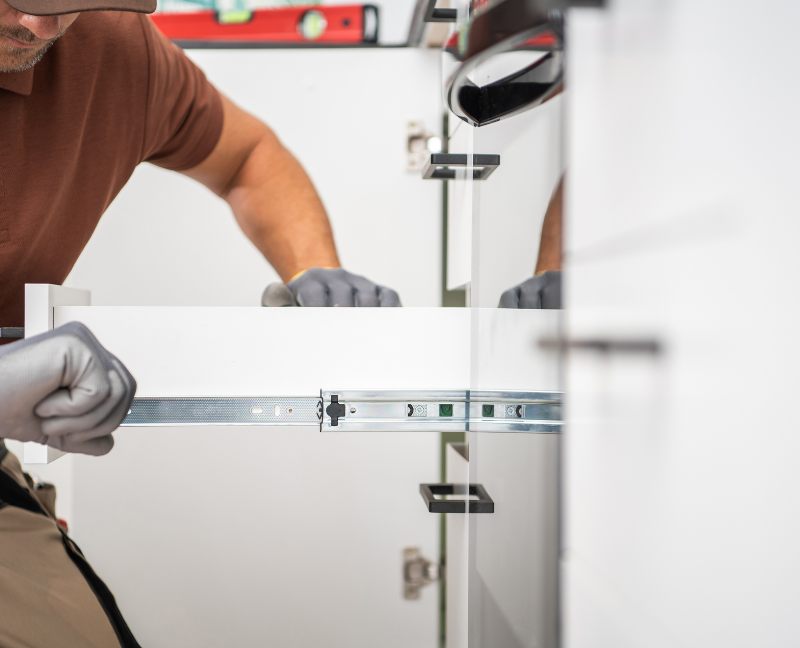
During a renovation, many homeowners change the backsplash in their kitchen. Engineered quartz is the most preferred material for backsplashes, followed by ceramic or porcelain tile. However, natural stone materials like granite, quartzite, and marble are equally popular among homeowners.
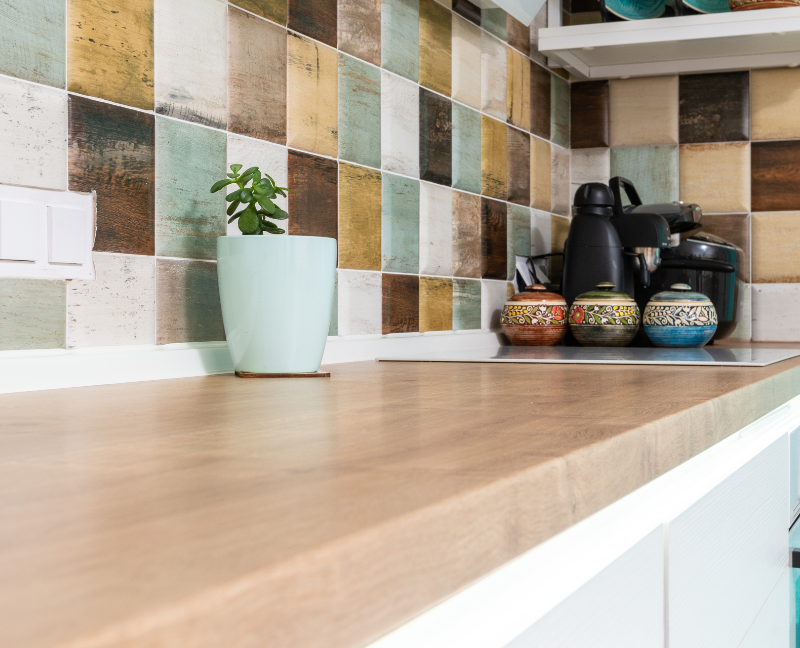
A larger kitchen island gives you more room for cooking and hosting guests, so many homeowners choose to expand their islands. Forty-two percent of homeowners remodeling their kitchens design seven-foot or longer kitchen islands.
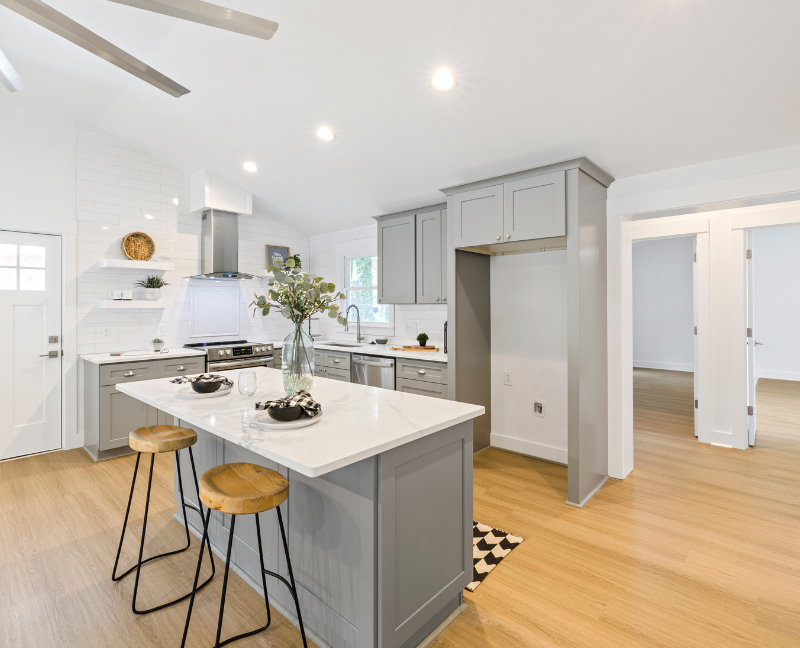
More color will be in the kitchen this year, especially on cabinets. Kitchen cabinets in wood and green are growing, but white is still the most popular. Wood tones are most famous for bottom cabinets, followed by blue for island cabinets.
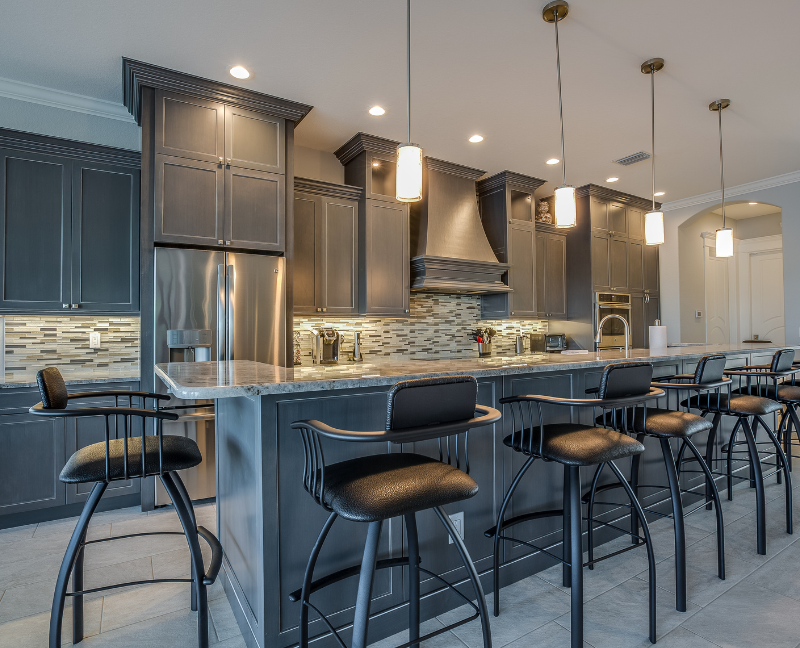
Organization is becoming increasingly important because people desire kitchens that are functional for them. Cutlery and utensil organizers, spice racks, and cookie sheet organizers are among the features that are becoming more and more popular.

Your kitchen's lighting creates a mood. Recessed lighting is still homeowners' first option when remodeling their kitchens. Some homeowners choose pendant lights, although under-cabinet lights are also trendy.

Check out these best kitchen renovation ideas to turn your kitchen into a gastronomic paradise. Elegant rustic themes to sophisticated modern designs fit any taste. Prepare to maximize the renovation kitchen ideas' beauty, functionality, and personal style.
All sellers have in mind just one thing - how to sell their home at the highest possible price. We are not the only ones trying to sell Indianapolis homes. Each neighborhood has several houses for sale like the one we do. Competition is not always a bad thing, especially if it is healthy.
Let’s do a walk-through…
Take a pen and paper and go outside of the house. Write down everything that you would like to change in your garden. Old baskets should be replaced, chairs repainted and some sprinkles fixed. Take a walk through your home and try to notice all the things that you would otherwise notice if this is your first time visiting this place. We all get used to our living environment, so we no longer see old, rusty, broken things around us that will decrease the overall value of the property even if those things are not going to be sold with the house itself.
To make sure that you are 100% ready before selling your property, here are detailed steps you can consider for a successful home-selling transaction.
When opting to sell your house quickly while you're in the process of moving, the first thing you should do is research the current real estate market. You have an edge because of this while interacting with buyers and agents. You'll also be able to appropriately adjust your expectations. As you look into it, keep the following in mind:
Cost: How much do comparable homes in your neighborhood sell for? When looking into comparable homes, take into account the neighborhood, the house's age and condition, and other features like restaurants, schools, and other facilities. By calculating the price per square foot of comparable homes that have previously sold, you may determine the worth of your own house.
Time On The Market: You must be aware of how long it typically takes for a house in your community to sell. The amount of time a house is posted for sale until it sells is referred to as its "time on the market." You can better plan for the date of your simultaneous move and sale if you are aware of the market time.
What Kind Of Market Is It In Your Area: Is it a seller's or a buyer's market? You have to know this because your sales strategy will be influenced by the market type. You would have the most advantages when selling your house in a seller's market. A seller's market may result from a high level of demand and little availability. However, more variables might also be involved. There will be less time on the market and higher housing prices in a seller's market. But there are benefits to a buyer's market as well, given that you are selling as well as moving. Sellers are more eager to sell when the market is in their favor. Additionally, you'll have more wiggle flexibility to bargain for a lower cost.
The next action you should take is to learn everything you can about your property. You can work out your house's price by working with a real estate agent. You will have an advantage with customers if you have hard data upfront. Additionally, since your agent won't need to do as much legwork, the sale of your home will proceed more quickly.
Having an appraisal of your home helps you determine a fair price for it. Pre-approved loan buyers will be fully aware of the price range they can afford. Thus, they will find this information to be quite beneficial. Furthermore, having an inspection completed will expedite the negotiation process because buyers—and you—will already be aware of all the issues with the property.
Knowing your purpose in selling your home will help you decide what you can live without during the selling and purchase process. While sharing this information with your realtor can help them better understand your unique requirements, you should not disclose this information to sellers when you are viewing homes for purchase. It's possible you won't receive the best bargain if they know what you can settle for.

Make sure the agent you choose is open to listening to you and comprehending what you are looking for. Go with someone knowledgeable about your community and the neighborhood you wish to move in.
Following your assessment, you ought to have a clear understanding of what needs to be fixed and what can wait. Additionally, your agent may assist you in determining which repairs, if any, will yield the best return on your investment. Find out from your agent which repairs will add the most value to the home and which, if skipped, won't have a significant impact on the sale price.
Repairs are an integral part of getting your home in Indianapolis ready for sale, and so are interior staging and landscaping. When staging, keep it simple and clutter-free. Anything overly imaginative or detailed could make it harder for your buyers to envision themselves living there; instead, provide them with a blank canvas! Also for unique areas, make sure your furniture is positioned to use every available space.
Being a wise home seller means:
The timing of selling your old house and purchasing a new one is the most difficult component. Although it is ideal for both closings to occur on the same day or within a few days of one another, this is certainly not always the case. For this reason, we suggest not signing on to your new home until after someone has signed to your previous one. From a financial standpoint, it makes more sense to book a hotel room for a few days or weeks rather than making two mortgage payments at once, etc. If there is no other means to own two residences at the same time, bridge financing is one alternative.
This might be a lot, especially when it’s your first time selling your home; however, as long as you are working with the right real estate agent, you can make the entire home-selling transaction easier and faster.
Contact us to learn how we can help put property on the market! Call us at 317-316-8224 today!
It's thrilling to look for a new home, especially when you discover what appears to be the ideal one. However, looks can be deceiving.
The largest problems in a house can be hidden from view if you don't know what to look for. And if you don't exercise caution, you can eventually wind up with a lemon of a new home that will end up costing you far more than you anticipated.
Avoid falling in love with a house before you have all the information, especially any warning signs. Maintaining composure and being vigilant can help you make a more informed choice and ensure that your new house is worth every penny.
Below are the top real estate red flags that might tip off buyers when hunting for a new property.
The most prominent red flags in real estate are listing prices that might seem too good to be true. This usually means sellers are extra-motivated in selling their home, which should make you question why.
They may need to sell soon for financial, personal, or career relocation reasons, or the home may be in bad shape. Ask your Realtor about the too-good-to-be-true price.
With many online real estate marketplaces, purchasers may easily research a property's history. If the home's sellers have lived there for two years or less, you might want to question their short tenure. Another problem might be if the home has had too many homeowners in the past as this might suggest that something is wrong with the property.
One of the approaches is to reach out to the listing agent to learn why the sellers are moving.
Is your Realtor the listing agent for the house you wish to buy as well? In that case, we recommend looking for a different buyer's agent who can prioritize and protect your interests during the entire real estate transaction. Ultimately, the goal of a listing agent is to maximize the seller's home's value, which is not in your best interest as the buyer. This is because the listing agent may lose sight of what's best for their buyers. After all, they want to close the deal quickly.
This might not sound like a big deal but this red flag should not be ignored.
As a potential home buyer, you might want to ask why the listing has a few photos. In today's digital age, it's not challenging to take images, so having a few or none at all might suggest that there might be something wrong with the listing.
Before taking a tour of the house, we advise you to ask your Realtor to find older pictures of the property from earlier postings. If any rooms were omitted from the advertisement, be sure to inquire as to why with the sellers.".
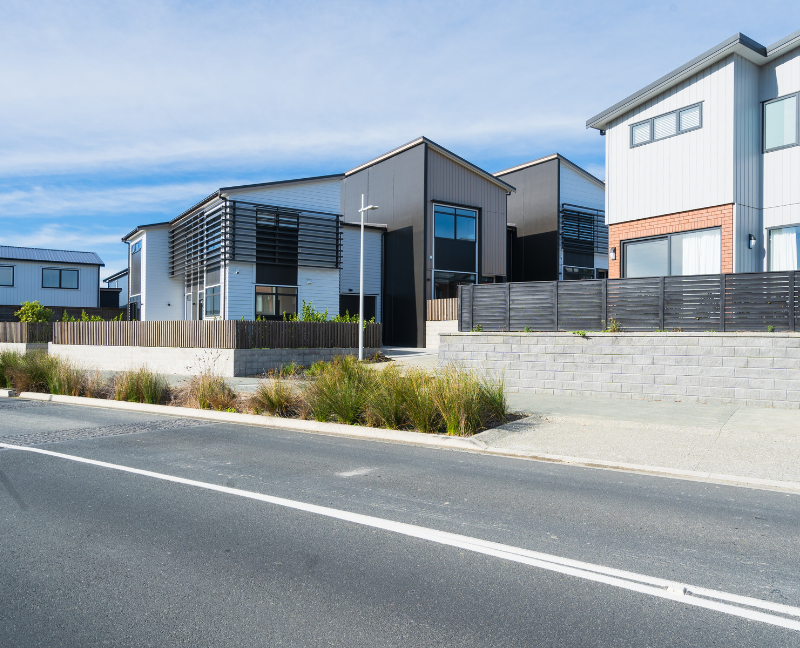
Is the house near a busy highway or road? If yes, the listing images will likely attempt to hide this by adjusting the angles so potential viewers won't see the road.
Therefore, before you visit the house, look up the address on Google Maps. Homes next to or on major highways and roads usually have a harder time selling. One reason is that homeowners have to deal with pollution and health issues in addition to noise and traffic.
Renovations are good; however, if it's too much, it might indicate inconsistent renovations and adjustments. Permit requirements and rules change. If multiple owners have altered the home, some work may have been illegal.
Do you notice several other houses on the same block listed as "For Sale"? There might be a reason for that. If there was ever a real estate red flag, it would be a mass evacuation from the street.
When you notice that several of your neighbors have listed their house, be careful to inquire as to why.". This can be a sign of a problem, or it might just be a coincidence. In any case, find out the truth before buying a house on the street.
Is it obvious that this is a flip? Make sure to find out who remodeled the house if the developer bought and made renovations before listing it for sale. Keep in mind that savings may have been made on renovation costs, particularly if the developer had no intention of residing in the house. For example, even though the makeover might have improved the house's appearance, it might not have enhanced the most vital parts, such as the HVAC system, plumbing, roof, and electrical wiring.
Is the house under contract and then all of a sudden back on the market? That might be a bad sign.
A house that comes back on the market even just after closing a deal may indicate there is a problem with the residence or the home inspection went wrong. Unfortunately, this happens frequently. For instance, there's an infestation or electrical issues. Although repairable, the costs might be too high.
They say, "Where there is smoke, there is fire."
Pay notice if you detect an unpleasant smell coming from a house. This suspicious incident can be an indication of poor home maintenance.
Unpleasant smells may be signs of plumbing, HVAC, mold, water damage, vermin, or inadequate ventilation in a house.
Take Note
First things first: Never skip a home inspection, regardless if you notice any red flags or not. This way, you'll know what's wrong before buying the property.
If the inspection report indicates issues, purchasers can decide whether to fix them before buying.
Can you think of other red flags when buying a home? Do you have any relevant experience you can share? If yes, we'd love to hear your thoughts in the comments!
Real estate has widely adopted sustainable and eco-friendly techniques in recent years.
From residential properties to commercial establishments, green features have proven their benefits. Sustainability improves the environment, tenants' quality of life, and long-term costs.
Determining the importance of sustainability in real estate involves both strategic investment and environmental responsibility.
Green techniques frequently result in long-term cost savings and enhanced property values. Environmental duty consists of minimizing carbon emissions and protecting natural resources.
This post discusses the growing popularity of eco-friendly and sustainable real estate characteristics, including green building methods, energy-efficient appliances, renewable energy sources, and eco-conscious architecture.
Sustainable living has grown due to environmental awareness and the desire for energy-efficient and environmentally friendly lives. Due to this paradigm shift, real estate developers, architects, and homeowners now prioritize sustainability. Sustainable building strategies reduce these negative consequences by using eco-friendly materials, minimizing energy use, and using renewable energy.
Here are the essential details you need to know about sustainable real estate;
Green building practices contain many strategies to reduce buildings' environmental footprint while promoting occupant health and comfort. These practices include energy-efficient design, sustainable materials, and others.
Energy-efficient buildings use enhanced insulation, high-performance windows, and efficient HVAC systems to save energy and reduce fossil fuel use.
Additionally, green buildings use natural ventilation, low-emission materials, and air filtration to enhance indoor air quality. Better indoor air quality improves health, productivity, and well-being.
Besides sustainable building principles, green real estate uses energy-efficient appliances and fixtures. Refrigerators, dishwashers, lighting fixtures, and plumbing fittings that use less electricity and water reduce utility expenses and environmental effects.
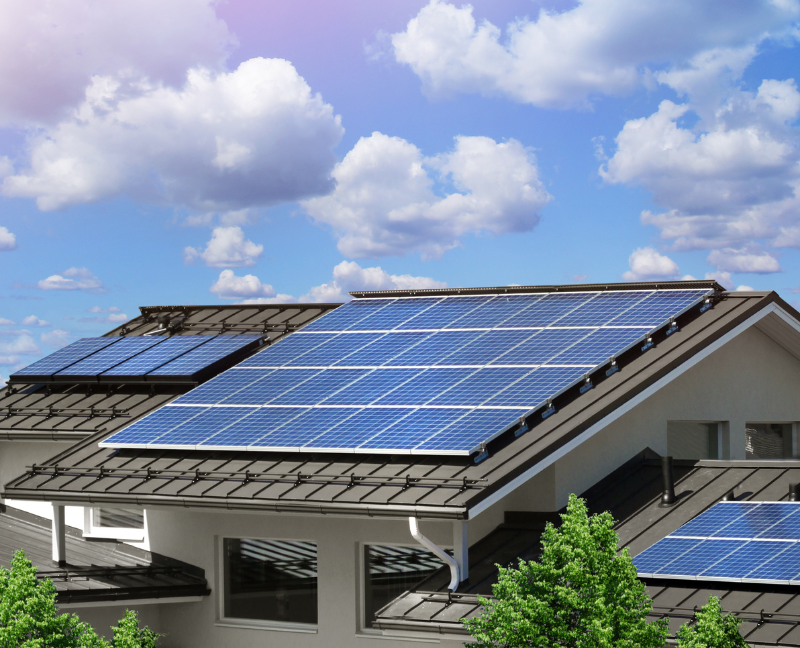
Sustainable real estate relies on solar, wind, and geothermal electricity. Buildings may use less fossil fuels and help clean up the electricity grid using renewable energy.
Low costs and generous incentives have made solar photovoltaic (PV) systems popular in residential and commercial locations. Systems that turn sunlight into electricity power homes and businesses with clean, renewable energy.
Wind turbines, geothermal heat pumps, and solar PV can generate sustainable energy on-site. Property owners can lessen their carbon footprint by investing in these systems and earning net meters and renewable energy credits.
Beyond renewable energy and energy efficiency, eco-conscious design is essential to sustainable real estate. There are several features and initiatives to reduce environmental impact and improve user comfort and well-being.
Native landscaping increases biodiversity and takes less upkeep than lawns, while green roofs and rainwater harvesting systems manage stormwater runoff and minimize water use.
Recycling and reusing materials in construction and interior design reduces waste and carbon emissions. Reclaimed wood flooring and recycled glass countertops provide character and charm while reducing environmental effects.
Together with green features, green certification, and standards are crucial to real estate projects. Several organizations and projects have set sustainable building standards for developers, architects, and homeowners.
A stage toward a more sustainable environment is the importance of sustainability in real estate. From green construction techniques to energy-efficient appliances, renewable energy sources, eco-conscious design, and green certification and standards, sustainability has many benefits.
As demand for sustainable living rises, so will green features in homes and businesses. Sustainability and green certification in real estate development and restoration projects may build healthier, more resilient communities and protect the earth for future generations.
Typically, a traditional house is constructed of brick or stone, has a roof that is designed to keep the rain out of the building, and includes an electrical system. But as millennials enter the home market, the standards are starting to shift, and they are spearheading the development of "wellness-minded" structures.
Although they initially cost slightly more than traditional homes, eco-friendly homes ultimately save you money. It provides quality living space and more benefits for you and the environment.
Beyond the immediate advantages of reduced environmental impact, these homes offer a compelling offer for homeowners: long-term cost savings through eco-friendly ways to save money.
Eco-friendly homes are designed to be as self-sufficient as feasible and have as little impact on the environment as possible.
Sustainable houses use a variety of natural resources, including earth, wind, and light, to minimize their carbon footprint and drastically cut down on the amount of heat and electricity that a homeowner uses.
As we grapple with climate change, resource shortages, and environmental damage, eco-friendly homes are a practical solution. While the upfront costs may seem significant, the "eco-friendly ways to save money" offers that can lead to substantial savings over the property's lifespan.
Eco-friendly homes provide a high-quality living space and help you to save money. An environmentally friendly structure can reduce the amount of water and energy used by 30–50% and 30–70%, respectively. Living in a green building can save money on power and air conditioning.
A well-designed space, for instance, requires less air conditioning. When accounting for these savings, green buildings can be significantly less expensive. More green materials and consultants are currently needed.
Thus, although an eco-friendly home may seem expensive, you shouldn't be worried. Building full-cycle costs increase insignificantly. Eco-friendly insulation and hypo-thermal glass cost 5-8% more. The increased cost can be recouped in 3-5 years due to considerable savings.

Eco-friendly homes aren't limited to those who build themselves. Builders are offering more "eco-friendly" apartments and villas as awareness develops.
Living and working in an eco-friendly environment will gain popularity as customers learn about its benefits.
Eco-friendly buildings are rated on numerous criteria before being green:
Sustainable homes are not a carbon footprint lifestyle statement. Many builders use green ratings and certificates to market their properties.
Not all "green" or "eco-friendly" properties are because they have lawns and gardens; many small and mid-sized builders term their projects eco-friendly.
Checking rating agency certification when buying a "green" home will assist you in spotting a greenwash.
Here are the several eco-friendly ways to save money:
Eco-friendly homes provide quality living space and lower utility bills while saving money over time. In addition, having an environmentally friendly home can help you obtain financing at more favorable interest rates.
These eco-friendly ways to save money encompass features like sustainable building materials, renewable energy sources, and effective insulation, among other eco-friendly cost-saving measures.
Community gardens and real estate are integrating beyond greenery in metropolitan areas. Adding green spaces to real estate developments improves aesthetics and benefits people and the community as cities grow.
One crucial aspect to consider is the environmental benefits offered by community gardens. Are community gardens good for the environment? In this post, we will help you understand what community gardens do in the environment.
"Are community gardens good for the environment?" -- that's one of the frequently asked questions about community gardens. To answer this, you must first understand what a community garden is.
A community garden is a piece of land cultivated by a group of people. Vegetables and flowers are usually grown here individually or collectively. As a result, it helps improve physical and mental health and nutrition in the community.
A green revolution is quietly growing in urban settings with skyscrapers and busy streets. Growing concrete jungles requires additional green places. Amid urban chaos, communal gardens promote sustainability, community solidarity, and property values.
As green oases in urban settings, community gardens profoundly affect mental health, encourage sustainability through operations, and are increasingly valued as eco-amenities by real estate developers.
Community gardens bring nostalgia and nature to city dwellers, providing a refuge from city life. The emotional allure of these natural areas goes beyond aesthetics, affecting well-being and belonging.
Community gardens are essential for promoting mental and emotional health, creating a sense of community by bringing people into contact with nature in urban areas, and encouraging personal growth narratives through shared gardening experiences.

Community gardens increase real estate values and resident well-being. Developers realize that community gardens can boost property prices and increasingly embrace green facilities.
Growing community gardens are being used as selling factors in marketing efforts, and the demand for homes close to green areas is a sign of beneficial effects on property values, in line with real estate trends emphasizing sustainability and green living.
Community gardens serve as a platform for sustainable practices and allow locals to cultivate their food. These green areas become centers of environmentally conscious activities that improve the environment and teach the local population sustainable living practices, such as composting and rainwater collection.
Community gardens are essential to urban farming and self-sufficiency. They promote sustainability in urban environments through educational initiatives, rainwater gathering, composting, waste reduction, and water-saving techniques.
Keeping real estate and green spaces in balance is tricky as demand rises. Collaborative urban planning efforts, encouraging developers to include green amenities, and encouraging community involvement in decision-making processes are all necessary to balance the requirements of inhabitants and the demands of real estate development.
Community gardens in real estate serve emotional, social, and environmental demands in the ever-changing metropolitan setting. Green spaces and real estate create value in urban environments and a more sustainable and peaceful future.
The effects of community gardens on urban real estate include increased property values, environmental sustainability, and communal well-being. Developers are interested in how community gardens provide value, livability, and resilience to urban surroundings.
As we cross the urban jungle, you may know how these community oases affect property values and quality of life. Solutions must balance concrete with vegetation to preserve urban ecosystems for the next generations.
As winter takes hold, homeowners frequently contend with escalating energy bills stemming from heightened heating requirements. Nevertheless, prioritizing winter energy efficiency doesn't necessitate compromising on comfort or enduring the chill. In reality, by taking a few strategic measures, you can maintain a warm and snug home while concurrently cutting down on energy consumption. Explore these savvy strategies that empower you to establish an energy-efficient sanctuary without bidding farewell to comfort.
Seal the Leaks:
Optimize Heating Systems:
Leverage Natural Heat:
Upgrade Insulation:
Seal and Insulate Ductwork:
Invest in Energy-Efficient Appliances:
Maintain Fireplace Efficiency:
Regularly Replace Furnace Filters:
Use Ceiling Fans Strategically:
Practice Energy-Efficient Habits:
By implementing these winter energy efficiency tips, you can enjoy a warm and comfortable home without the burden of skyrocketing energy bills. Not only will these measures contribute to cost savings, but they also align with sustainable living practices, making your home more environmentally friendly. Embrace the chill with confidence, knowing that you've taken proactive steps to make your living space energy-efficient during the winter months.
In the previous part, we shared some tips about home security on preparing your home for the holidays and some additional things you need to do about preparing your home for vacation.
P.S. Click this link if you want a free downloadable checklist.
Here are more tips to get your home ready for your next holiday.
Whether it's keeping your home tidy or taking care of your appliances, here are some tips you can consider before going on a holiday vacation.
Keep your home clean and well-organized by following these tips:
Clear your fridge of expired food before your vacation to avoid a rotting smell. Give your neighbor food to avoid wasting it. Limit yourself to home-cooked meals the week before your vacation to use up all your groceries.
Clearing the garbage disposal before vacation will prevent odors. While running the disposal, add citrus peels for aroma.
Leaving your trash and recyclables in your home while on vacation can attract pests and rats. Toss and recycle in bathroom, kitchen, and garage containers. Request a neighbor to bring your empty receptacles to the curb and inside if you travel before pick-up day.
While on vacation, unclean dishes or silverware in the dishwasher may attract bugs or rodents. To arrive home to clean dishes, run and unload the dishwasher.
Do not leave wet clothes in your washing machine when traveling; otherwise, they will deteriorate. After washing it, you don't want to mildew your ugly holiday sweater.
Check the garage for pests and tiny rodents. If you detect any, over-the-counter medicines and insecticides may help. A pest control firm may help keep unwelcome "guests" out while you're on vacation.

Spend time washing and drying used bedding. After a long day of travel, you'll appreciate a clean bed and new sheets. This will also prevent bacteria growth.
Wet bath towels can cause mold and mildew in your bathroom: machine-wash and dry old towels.
Washing and drying dirty garments will reduce your chores after vacation. Also, this will keep bacteria from forming on sweaty clothes and let you come home to a complete wardrobe.
You want to avoid untidy floors and carpets when you return from vacation. Vacuuming carpets and sweeping floors before the holiday will keep your home clean and look fantastic when you return.
Remove food crumbs and clutter from countertops to deter insects. For a fresh scent and welcome kitchen when you get home.
These wet locations might grow mildew. Clean these places thoroughly before your winter holiday to return to a clean and welcoming bathroom.
Reduce the risk of damaging your appliances and energy use while you're away.
Unplugging electronics saves money and protects your home from power surges and fires.
To avoid wasted energy and power surge damage, unplug your toaster, coffee maker, blender, etc.
Adjust your thermostat to 55–60 degrees Fahrenheit in cooler months to rest your heating system instead of turning it off and freezing your pipes. You can check your home's temperature while abroad with a smart thermostat. You can adjust the thermostat remotely using a smartphone app in extreme cold.
Check each area and ensure all faucet handles are closed before leaving so water doesn't drip for days or weeks.
Your water heater can rest while you prepare for winter vacation. Reduce the unit's temperature to minimize utility expenditures. Gas heaters can be manually lowered. Try checking your electric water heater for vacation settings that lower water temperature.
Before going for a long winter vacation or a holiday visit to family, turn off your main water supply line. While you're away, the water stays at full pressure in pipes, so if one bursts, water will flow until it's turned off. That said, shut down the water supply pipe to avoid a flooded basement or pool in the living room.
Smart smoke detectors are useful in sending notifications while you're away. Make sure that they are working well by testing your smoke alarm batteries and system.
When is your next holiday vacation? How do you make sure that your home's safe when you get away? Feel free to share your tips in the comment section.
Winter holidays are the most popular period of the year to travel mainly because of its perks, such as lower prices, fewer crowds, and authentic experiences. However, an exciting trip might get ruined once you realize you forgot to lock a door or turn on the faucet in your rush to catch a flight.
Therefore, before you plan your next trip, learning tips on how to get your home ready for the holiday can help you enjoy a well-deserved break.
P.S. Click this link if you want a free downloadable checklist.
Below are easy yet helpful tips on how to prepare your home security, appliances, and housekeeping before a holiday vacation.
Before a weeklong vacation, prune your yard and shrubbery. Hiring a local lawn care provider regularly or bi-weekly may be ideal for long holidays.
Before vacationing in snowy places, clear or shovel your driveway. A snowy driveway without footsteps or tire marks may suggest no one is home. Expecting snow? A snow removal service may visit your property while on vacation to make sure that your driveway is clear.
Make a trip around your house to close and lock all windows and side and back entrances. Check pet doors for coverage and locking. As you leave, lock the front door.
Inform any neighbors remaining home for the holidays of your intentions and guests. They can phone authorities or warn you in an emergency or suspicious situation. They may also help with house-sitting chores like watering plants, collecting mail, and emptying garbage.
Close your blinds to make it hard for an unwanted guest to tell if your home is occupied. When planning a winter vacation, this can insulate your windows from the cold, reducing your heater’s workload.
Schedule outside lighting to highlight doorways and gloomy places around your property. This makes your house appear occupied and helps neighbors identify strange behavior outside. Motion-activated lighting lets you utilize it when needed instead of running the lights.
Leave a few modest lights on during your vacation to provide the impression of being home. Want to reduce electric consumption? Automation with digital timers would be more efficient and effective.

Arm your alarm before vacationing. Tell your provider about your travel plans and whether someone will be at your residence while you're away.
Ensure your doorbell camera works and shows anyone at your front entrance clearly. When you're away, a doorbell camera can protect your packages.
The welcome mat, door frame, potted plant, and other frequent areas to seek for spare keys are known by most individuals. Please offer your extra key to a house sitter, friend, or neighbor in case of need.
Junk mail and newspapers might accumulate while you're away, indicating an unattended home. Putting your mail and newspaper on hold is simple.
Automating your home takes two to three weeks, so prepare beforehand. Hiring a local home automation business may be worth it if you take an extended vacation or travel often. Smart home technology lets you control and monitor home security and appliance usage from your smart device.
Along with your primary home security, here are a few additional things you can do to make your home vacation-ready:
Before leaving, water indoor house plants, depending on the type and length of your trip. Have a friend, neighbor, or home sitter care for sensitive plants or longer getaways as needed.
We recommend leaving your pet with a friend or neighbor while on vacation if it needs daily food, walks, or medicine. You might also board them at a veterinary or pet-sitting service.
If you've taken all the required steps, hide your possessions upon departing. Keep valuables in a safe while on vacation. A well-decorated basement may need relocating valuables upstairs to prevent floods.
You won't have much hearty food left after wasting perishable stuff. If grocery stores and restaurants are closed, you'll be pleased to defrost a tasty lunch after your travels.
These are just some tips to help prepare your home for the holidays. Watch out for Tips For Getting Your Home Ready For The Holidays [Part 2] to learn more.
Buying a home is one thing; bidding for your dream house is another. It can be overwhelming and stressful, especially if you haven't done this before.
You may have prepared everything you need to purchase the property you want only to be outbid by another home buyer.
So, how to get a house in a bidding war and make sure that you end up with the home you want?
In this post, we'll give you easy steps that will make your offer stand out from the others.
During the process of purchasing a home, a bidding war might break out when there are numerous purchasers interested in buying the same property.
Each prospective buyer of a home continues to submit an offer that is higher or better than the previous one, which ultimately drives up the price of the residence.
In very competitive real estate markets, bidding wars may get out of control and even look nasty.
Here are nine simple steps on how to get a house in a bidding war:
Home-buying for the first time doesn't have to be complicated. You can save time and money by hiring a market-savvy real estate agent. The agent will negotiate with the seller's agent and recommend reputable, low-interest lenders. An expert loan officer with local roots can help the sale go through—request mortgage pre-approval to simplify the procedure.
Show the seller and agent you want the home. Most sellers worry about mortgage loan denials stopping the purchase. Request pre-underwriting from your lender before making an offer. A pre-approval shows you have funds, enhancing your negotiating power. This may speed up the closing procedure and waive your financial contingency.
Waiving buyer contingency clauses may help you get an offer approved on a house with many offers. Contingency offers eliminate surprises like repairs and title issues after buying a house.
Removing contract contingencies can sweeten your offer as the real estate market lacks homes. Strategy risk is higher. If you want to waive your financing or inspection contingency, talk to your real estate agent.
Down payments often indicate the buyer's financial situation to the seller. If the seller compares bids, a bigger down payment may suggest a stronger commitment to closing.
More cash in the bank informs the seller you won't walk away after low appraisals or hefty repair bills. To entice the seller, provide earnest money—sellers like purchasers with good faith deposits who want their ideal home. Average charges are 1% to 3% of the purchase price, depending on area.
As home inventories decrease, homebuyers must be inventive to convince sellers to accept their bids. Escalation clauses in buyer contracts allow you to match and offer more than the highest bid until a specified amount.
Consider inserting an escalation clause carefully. Seller's agents can use the clauses to get you to pay significantly more for the home than contracted. Talk to your realtor before utilizing this aggressive technique.

Appraisal discrepancies are a major cause of missed house sales. If prices soar faster than appraisers can justify, they will value a home below contract. A lesser price may cause sellers to walk away.
Offering to fill part of the evaluation gap can boost your offer. Paying more than the home's value may be necessary. Waiving the appraisal contingency and contributing to discrepancies ensures the seller won't have to lower the price following the house inspection.
An advance cash payment is the easiest way to get a house offer accepted with many offers. You have the money to close an all-cash home payment. A clean offer without mortgage lender contingencies is also what it means. Eliminating finance problems speeds up closure.
Acknowledge sellers' demands with some flexibility. If you can afford closing costs, offer. Understanding each seller's wants and acting fast will help you beat other bidders to the sale. To respond fast to the seller, make sure your real estate agent communicates. The seller may accept your offer if you show that you are serious about closing quickly and without complications.
Giving the seller a personal letter with your contract offer is outmoded. Your letter might convey that you value the home where they built many memories, enticing them to accept your proposal.
Avoid using your religion, race, or politics in the letter to avoid unconscious bias. Growing Fair Housing Act litigation is discouraging real estate brokers and their clients from employing this method.
Rejections for homes on the market might demoralize buyers. You may need to entice sellers with your bid.
The tips above can help show your willingness to go the extra mile to buy the property.
Do you have more tips on how to make your offer stand out? If yes, feel free to drop them in the comment section!

8313 W. 10th St
Indianapolis IN 46234
dennis@indyhomepros.com
317-316-8224